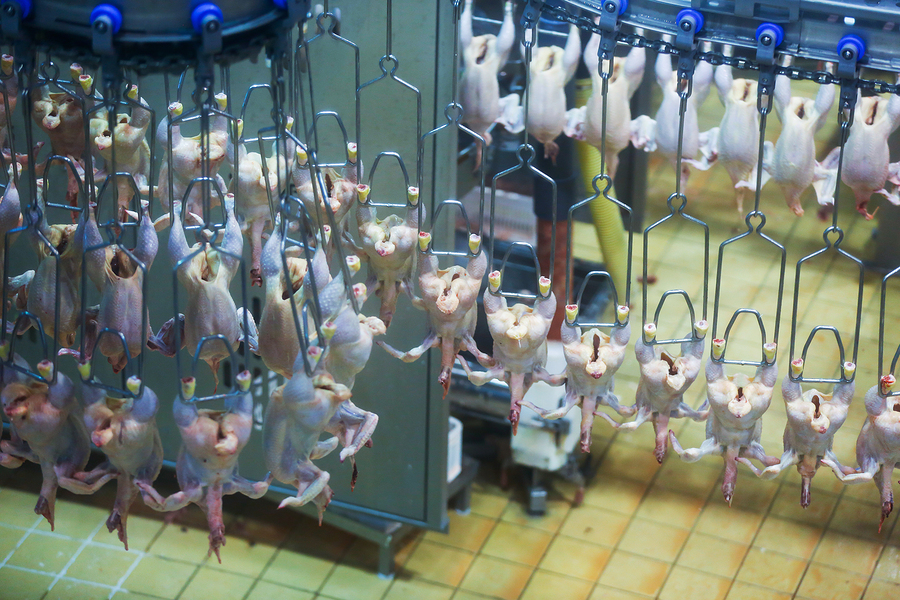Three Key Suggestions for Building a Safer, More Integrated Supply Chain
By Marcelo Gomez
There are many aspects to improving food safety and one that merits additional focus for food manufacturers is the concept of supply chain integration.
An integrated food supply chain (IFSC) involves multiple companies that strategically collaborate to coordinate the processing of raw agricultural products into processed foods for consumer consumption or incorporation into other processed products.
In order to succeed, integration is needed both internally within the company, and externally with partner companies. As a concept, supply chain integration has been referenced academically since the 1970s. In more recent decades, however, it has gained increased attention in the supply chain management discipline, primarily as it pertains to performance. Issues around the physical flow of product have been at the heart of most studies in the area.
“Effective supply chain integration requires a common vision and a focus on the achievement of collective goals.”
Higher Levels of Complexity
While food supply chains have characteristics in common with other supply chains, in the food industry there are higher levels of complexity. This is primarily because stakeholders may have conflicting goals, such as maximizing profits and securing market share. In addition, there is the added issue of food safety that raises the stakes across the board, from farm to fork.
The notion of integration is increasingly being recognized for its ability to extend benefits throughout the food supply chain, especially in terms of its ability to drive knowledge, communication, and collaboration. What we know for sure, is that food manufacturers should be focusing on three key areas in order to maximize supply chain integration from a food safety perspective:
1. A Common Vision
Effective supply chain integration requires a common vision and a focus on the achievement of collective goals. Ideally, all companies involved need to adopt a business culture that supports the goals and puts food safety front and centre.
2. Access to the Necessary Resources
Sufficient resources such as access to technology management and product management need to be available to companies throughout the food supply chain; all companies need to develop collaborative processes that support product traceability and food safety initiatives.
3. Strong Communications Strategies
Collaboration itself is dependent upon business and communication strategies that enable the interaction between people and affect food safety processes. However, communication strategies are much more difficult to implement when supply chain partners are involved, and these should primarily address communication barriers, such as shared logistics.
The overall objective of supply chain integration is to assure consumers that measures are being taken to guarantee food safety. Success in this area currently relies heavily on the oversight by the food industry and regulatory authorities of individual countries. It is imperative that priority be given to embedding a food safety culture to strengthen food safety processes and shift the focus from regulatory enforcement to business compliance.<
Integrating Information Technology
The integration of information technology (IT) can assist supply chain partners, from producers to manufacturers considerably. In particular, companies would benefit if the departments involved could contribute a food safety knowledge-based system that includes:
-
-
- a testing management system
-
-
-
- a food safety information publicity system, and
-
-
-
- mobile application technology
-
This would integrate knowledge across food networks and provide a solution to stakeholders that would enable communication throughout the food supply chain while engaging partner companies. Eventually, it could also create a collaborative process where food safety risks could be easily discussed and resolved.
Ultimately, a comprehensive integration strategy can improve knowledge and decision-making activities within and across partner companies. However, businesses need to be dedicated to implementing the kind of integrative programs that will ultimately benefit companies bottom line while reducing risk to stakeholders.
About the Author
J. Marcelo Gomez is the CEO of Ensynk and Associates, a firm that provides operations and sustainable supply chain, research, and innovation advisory services to SMEs around the globe. He teaches supply chain management courses and actively researches sustainability and integration of the food industry.
-
 FeaturedRisk management
The Cost of a Breach: What a Cyberattack Could Mean for Food Safety Recalls
FeaturedRisk management
The Cost of a Breach: What a Cyberattack Could Mean for Food Safety Recalls
-
 FeaturedRisk management
Securing the Food Chain: How ISO/IEC 27001 Strengthens Cybersecurity
FeaturedRisk management
Securing the Food Chain: How ISO/IEC 27001 Strengthens Cybersecurity
-
 FeaturedRisk management
Revolutionizing Food Safety Training: Breaking Out of the “Check-the-Box” Mentality
FeaturedRisk management
Revolutionizing Food Safety Training: Breaking Out of the “Check-the-Box” Mentality
-
 GFSI Standards
GFSI 2025: Building Trust, Tech-Forward Solutions, and Global Unity in Food Safety
GFSI Standards
GFSI 2025: Building Trust, Tech-Forward Solutions, and Global Unity in Food Safety
-
 FeaturedFood Safety
Integrated Pest Management: Strategies to Protect Your Brand’s Reputation
FeaturedFood Safety
Integrated Pest Management: Strategies to Protect Your Brand’s Reputation
-
 FeaturedFood Safety Culture & Training
No Open Door Policy: Challenges That Impact Pest Control in Food Processing Plants
FeaturedFood Safety Culture & Training
No Open Door Policy: Challenges That Impact Pest Control in Food Processing Plants





